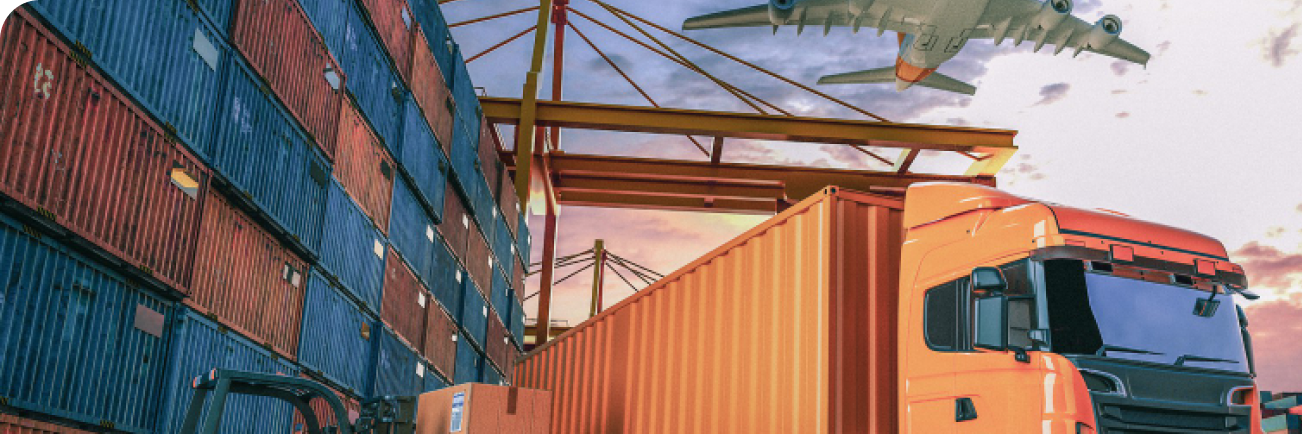Is our healthcare sector facing any challenges? Yes, they are, As the healthcare industry in India continues to evolve and expand, the efficient management of healthcare logistics becomes very important to look at. This field consists of the intricate processes involved in the transportation, storage, and distribution of medical supplies, equipment, and pharmaceuticals. This blog explores the challenges faced in health-related logistics in India and highlights the potential solutions to enhance the delivery of healthcare services to patients across the nation and how impactful is healthcare field on patients.
Some of the Challenges in Healthcare Logistics
In every field there exist some kinds of challenges, here we can analyze some challenges faced by the Health-related logistics field.
Infrastructure Limitations
One of the primary challenges is the lack of solid infrastructure. Bad transportation networks, underdeveloped warehousing facilities, and limited last-mile connectivity pose issues in ensuring the timely and efficient delivery of medical supplies to healthcare institutions. Addressing these challenges requires investments in infrastructure development, expanding road and rail connectivity, and establishing strategically located warehouses and distribution centers.
Fragmented Supply Chain
India’s healthcare supply chain is often characterized by fragmentation, with multiple stakeholders involved in the production and distribution process. This fragmentation leads to inefficiencies, redundancies, and delays. Streamlining the supply chain by fostering collaboration and coordination among manufacturers, distributors, healthcare providers, and government agencies is crucial. Implementing integrated information systems and supply chain management solutions can increase visibility and streamline the flow of healthcare products.
Temperature Control and Cold Chain Management
Maintaining the integrity and efficacy of temperature-sensitive pharmaceuticals and vaccines is a critical aspect of pharmaceutical logistics. India’s diverse climate, inadequate refrigeration infrastructure, and long distances pose significant challenges in maintaining the required temperature throughout the supply chain. Investing in temperature-controlled transportation, storage facilities, and cold chain management systems is essential to ensure the safe and effective delivery of healthcare products, particularly in remote and rural areas.
Regulatory Compliance and Documentation
The healthcare logistics sector in India operates under strict regulatory frameworks, necessitating compliance with various guidelines, licenses, permits, and quality standards. Ensuring adherence to Good Distribution Practices (GDP), Good Manufacturing Practices (GMP), and other regulatory requirements is essential to uphold the quality and safety of medical supplies. Implementing robust documentation processes, maintaining accurate records, and promoting awareness and training on regulatory compliance are key steps toward improving health-related logistics in India.
Skilled Workforce and Training
The success of healthcare logistics heavily lies in a skilled workforce equipped with the necessary knowledge and expertise. However, a shortage of trained logistics professionals causes a significant challenge. Investing in training programs, skill development initiatives, and collaborations with educational institutions can help address this gap. By placing a skilled workforce, pharmaceutical logistics can increase efficiency, accuracy, and adherence to best practices.
Impact of Healthcare Logistics on Patients

Healthcare logistics plays a crucial role in the overall patient experience and has a significant impact on patient care and outcomes. Here are some key ways in which logistics affects patients:
Timely Access to Medications and Supplies
Efficient pharmaceutical logistics ensure that patients have timely access to the medications, medical supplies, and equipment they need for their treatment and care. By ensuring the availability of essential healthcare products at the right time and place, logistics help prevent delays in treatment, manage chronic conditions effectively, and improve patient adherence to medication regimens.
Quality and Safety of Healthcare Products
Healthcare logistics plays an inevitable role in maintaining the quality and safety of healthcare products. Proper storage, handling, and transportation of medications, vaccines, and medical supplies are essential to preserve their integrity and efficacy. By ensuring that the temperature control requirements are achieved, implementing secure packaging, and utilizing tracking and monitoring systems, logistics helps prevent product spoilage, contamination, and counterfeit issues. This ensures that patients receive high-quality, safe, and effective healthcare products, contributing to positive treatment outcomes.
Patient-Centric Distribution and Delivery
Healthcare logistics focuses on patient-centric distribution and delivery models to meet individual patient needs and preferences. By optimizing routes and transportation methods, pharmaceutical logistics ensure that medications and supplies are delivered to healthcare facilities, pharmacies, and patient’s homes efficiently and on time. Patient-centric logistics models like home healthcare delivery and personalized medication packaging will increase convenience, reduce barriers to access, and improve patient satisfaction. These approaches empower patients to receive the care they need in a manner that suits their individual circumstances.
Emergency Response and Disaster Management
During emergencies like natural disasters, or public health crises, healthcare logistics play a crucial role in responding fastly and effectively to provide necessary healthcare resources to affected areas. Logistics enables the rapid deployment of medical supplies, equipment, and healthcare professionals to support emergency response efforts. By ensuring the availability and timely delivery of critical resources, pharmaceutical logistics help save lives, provide essential care, and mitigate the impact of emergencies on patient health.
Continuity of Care and Healthcare Services
Effective healthcare logistics support the continuity of care and healthcare services for patients. It ensures the uninterrupted supply of medications, medical equipment, and supplies required for ongoing treatment, chronic disease management, and long-term care. By minimizing stockouts, optimizing inventory management, and implementing efficient supply chain processes, logistics helps healthcare providers deliver consistent and reliable care to patients. This contributes to better disease management, improved patient outcomes, and enhanced patient satisfaction.
Patient Safety and Risk Mitigation
By checking regulatory requirements, implementing quality management systems, and monitoring product integrity, logistics help prevent medication errors, product recalls, and adverse events. Accurate tracking, traceability, and expiration date management minimize the risk of using expired or counterfeit products. By ensuring the safe and secure transportation, storage, and handling of healthcare products, logistics safeguard patient health and reduce potential harm.
So, Healthcare logistics has a profound impact on patients by ensuring timely access to medications and supplies, maintaining product quality and safety, facilitating patient-centric distribution, supporting emergency response efforts, enabling continuity of care, and promoting patient safety. By optimizing logistics processes and embracing innovative approaches, pharmaceutical logistics contributes to enhanced patient care, improved treatment outcomes, and an overall positive patient experience.
Conclusion
In conclusion, Healthcare logistics in India is a dynamic and complex landscape that requires dedicated efforts and innovative solutions to overcome the challenges faced. By recognizing the importance of robust infrastructure, streamlining the supply chain, investing in temperature-controlled facilities, ensuring regulatory compliance, and putting a skilled workforce, this sector can contribute significantly to improved patient care across the nation. Collaboration among stakeholders, leveraging technology, and continuous improvement are key drivers in transforming healthcare logistics into a well-orchestrated system that enhances accessibility, reliability, and efficiency in delivering great healthcare supplies to those in need.
Galaxy Freight’s expertise in handling hazardous items, coupled with its global operations, positions them as a valuable partner for businesses engaged in healthcare logistics. Their comprehensive range of freight services, commitment to quality, and understanding of regulatory compliance make them an ideal choice for secure and efficient transportation of healthcare-related products, ultimately contributing to improved patient care in India.
By reaching out to Galaxy Freight, businesses involved in healthcare logistics can benefit from their extensive experience and industry-specific solutions.



